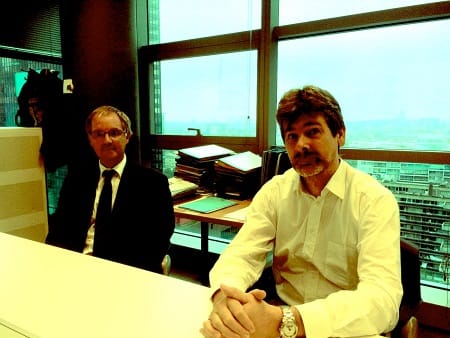Startup companies can get funding from the Flemish government for their R&D activities. Recently, the responsible agency was reformed and is now known as Flanders Innovation and Enterpreneurship (VLAIO). They decide how the 500 million euro for innovation and enterpreneurship is distributed within Flanders. Funds are available for early stage research, but funds for clinical trials are limited, forcing clinical-stage companies to rely on other funding schemes. At the same time, the R&D subsidies may attract foreign startups to the Flemish region.
IWT is gone, meet Flanders Innovation and Enterpreneurship
At the start of 2016, the Flemish Agency for Innovation by Science and Technology (IWT, Agentschap voor Innovatie door Wetenschap en Technologie) was merged with the Flemish Agency for Enterpreneurship to form Flanders Innovation and Enterpreneurship (Agentschap Innoveren en Ondernemen). As a consequence, industrial and academic R&D subsidies will need to be applied for at separate instances. . Companies are now being asked to reroute their inquiries to VLAIO, the university researchers for FWO (Research Foundation – Flanders). Bernard De Potter, General Administrator for the agency, comments: “The subsidies for growth of SMEs will be integrated into one instrument, creating one access point for companies for all their questions and applications. This merger will simplify a lot of things while we assure continuity of our services during the transition period.”We also see that university spin-offs are more aware of how they can apply for subsidies, in comparison with some more traditional SMEs.
The Flemish R&D and entrepreneurship budget amounts to over 500 million euros
Luc De Buyser, Department Head VLAIO, says: “In our bottom-up R&D funding scheme for companies, companies can apply for funding whenever they want to. Selection criteria are set at the beginning of each year. If the demand for subsidies increases, we will have to select more strictly. We continuously monitor our budgets, allowing us to predict what the demand will be. There is no fixed amount that we allocate to a certain field. However, we do monitor whether the requests from different sectors are more or less distributed evenly. If, by example we wouldn’t get any application for life sciences in the first four months of the year, we would definitely try to find out why this is the case.” De Potter continues: “We also see that university spin-offs are more aware of how they can apply for subsidies, in comparison with some more traditional SMEs. To help out the latter group, we set up the innovation centers to give them proper advice.”The chance of succeeding averaged over the last 10 years ranks between 70 to 80%.
What are the odds?
De Buyser replies: “The chances that your application will be approved and you will get funding are very high, especially in comparison with the rest of Europe. The chance of succeeding averaged over the last 10 years ranks between 70 to 80%. Basically, a good project that meets the criteria, we will always try to fund. Per project, a grant of a maximum of 3 million euros can be obtained and one company cannot get more than 8 million euros per year.”No subsidies for clinical trials
De Potter says: “We don’t have specific funds to support clinical trials, but limited support can be made available. We also try to facilitate B2B and VC contacts, which can help companies in this phase. In the future, we would like to couple our services with those of, for example, PMV and organizations who can support companies during the marketing phase. Moreover, FlandersBio and Flanders Investment and Trade (FIT) play an important role in getting companies in touch with investors.”The grass is greener on the other side
It is not because the companies are sold to a larger foreign company that the activities are re-allocated.Belgian startups are often sold to foreign companies, as they lack the money to invest further in clinical trials themselves. Shouldn’t we be doing more to keep companies here? De Potter replies: “We are very aware of that phenomenon, although this is not always a bad thing. It is not because the companies are sold to a larger foreign company that the activities are re-allocated. Genzyme in Geel is a good example. It’s important to keep a good balance and we are focused on creating growth funds to better support startup companies in the long term.” “At the same time,” comments De Buyser, “organizations such as FIT actively try to attract companies to Belgium. If we receive a foreign proposal to start up a company in Belgium, we provide customized advice on a variety of benefits, and on legal and financial aspects. We even have the ‘Flanders Welcome’ team to smoothen the integration process, specifically for life sciences.” The Flanders Welcome team in Life Sciences is a collaboration between FlandersBio, FIT, VIB and VLAIO.


